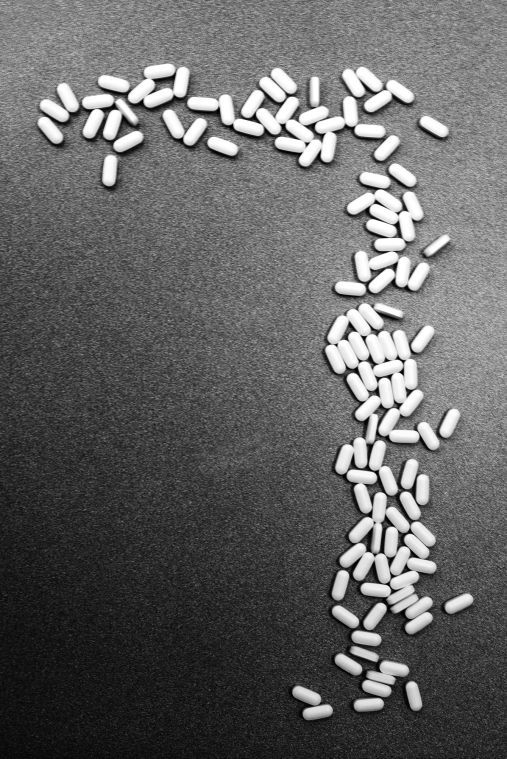Legal does not mean healthy
October 25, 2013
Legal does not mean safe.
The most commonly abused drugs are tobacco, stimulants and depressants. Although these drugs are in fact legal, they are a continuous cause of health issues and users should be aware of their side effects. Educate yourself. If you suspect that you, or someone you know, have symptoms of addiction or you fear an overdose, seek medical help immediately.
People consume tobacco by smoking cigarettes, cigars and pipes. Tobacco can also be chewed or snorted in its powder form. Each cigarette contains about 10 milligrams of nicotine, according to the National Institute on Drug Abuse, or NIDA. With each puff of a cigarette, smokers gather nicotine and other harmful substances into their lungs, where it is absorbed into the blood. Then, it takes eight seconds for the nicotine to hit the brain and immediately cause chemical changes in both the brain and the body, including increased blood pressure, heart rate and respiration.
A person gets about one to two milligrams of nicotine from each cigarette, which is just enough to create an addiction. With addiction comes the increase in the risks of cancer, respiratory disease, cardiovascular disease, and ultimately death.
More than 293 billion cigarettes were purchased in the United States in 2011, with three companies selling nearly 85 percent of them, according to the Centers for Disease Control and Prevention. Cigarette smoking kills more than 440,000 Americans each year, with an estimated 49,000 of those deaths attributed to exposure to secondhand smoke.
A trendy alternative to cigarettes is smoking hookah. A hookah is a tobacco pipe with a long, flexible tube that draws flavored smoke through water contained in a bowl. Many would argue that hookah isn’t as harmful as smoking a cigarette, yet it is just as troublesome.
Hookah smokers inhale deeper and smoke for longer periods of time, usually up to 60 minutes a session, which results in the inhalation of larger volumes of tobacco smoke, according to Forbes. The article also included a study conducted by Respirology in Aug. 2012 that demonstrated that hookah smoking had similar effects on lung function and respiratory symptoms, as cigarettes do, such as tightening in the chest, coughing and wheezing.
Aside from the garden variety drugs, the effects of stimulants and depressants can be even more harmful.
Stimulants increase alertness, attention and energy, as well as elevate blood pressure, heart rate and respiration, according to the NIDA. Familiar drugs like caffeine and prescription mood enhancers are categorized as stimulants. Caffeine is the most widely used drug in the world and is found in coffee, tea, cocoa, chocolate candy, and soft drinks. Heavy use can cause anxiety, headaches, fatigue, and irritability.
People use prescription stimulants to treat physical and psychological disorders, such as attention-deficit hyperactivity disorder and narcolepsy. Prescription drugs can be easily abused, which can cause both short-term and long-term health consequences, such as kidney failure, according to Northwest Kidney Centers.
Many over-the-counter drugs like cough medicines require a level of self-regulation; how many doses a person should consume, and if food or drink is required along with the drug to avoid side effects. Easy access to cough syrup has led to a spike in its abuse, which can lead to seizures, and as a narcotic it is very addictive according to the NIDA.
Central nervous system (CNS) depressants reduce brain activity and are used to treat several different disorders. Barbiturates, used to treat seizure disorders, produce effects ranging from mild sedation to complete anesthesia. Benzodiazepines, a psychoactive, are used to combat acute stress reactions, panic attacks and convulsions.
CNS depressants are commonly taken in conjunction with other drugs, such as alcohol, to counteract the ill effects of those drugs. The double dose of depressants often has fatal side effects.
Like any other drug, a dependency can form with CNS depressants. During the first few days of taking a CNS depressant, a person usually feels sleepy and uncoordinated. With continued use, the body becomes accustomed to these effects, and they lessen, which leads to increased consumption, according to Drug Abuse.
Even though tobacco, stimulants and depressants are legal and widely accepted in Western society, it does not mean that they are safe. It is vital for users and potential users to be fully aware of these adverse effects and understand the impacts that these legal, yet potentially harmful, drugs can have on the body.
-Chelsea Keyes is a sophomore communication major from Tacoma. She can be contacted at 335-2290 or by [email protected]. The opinions expressed in this column are not necessarily those of the staff of The Daily Evergreen or those of Student Publications.






















